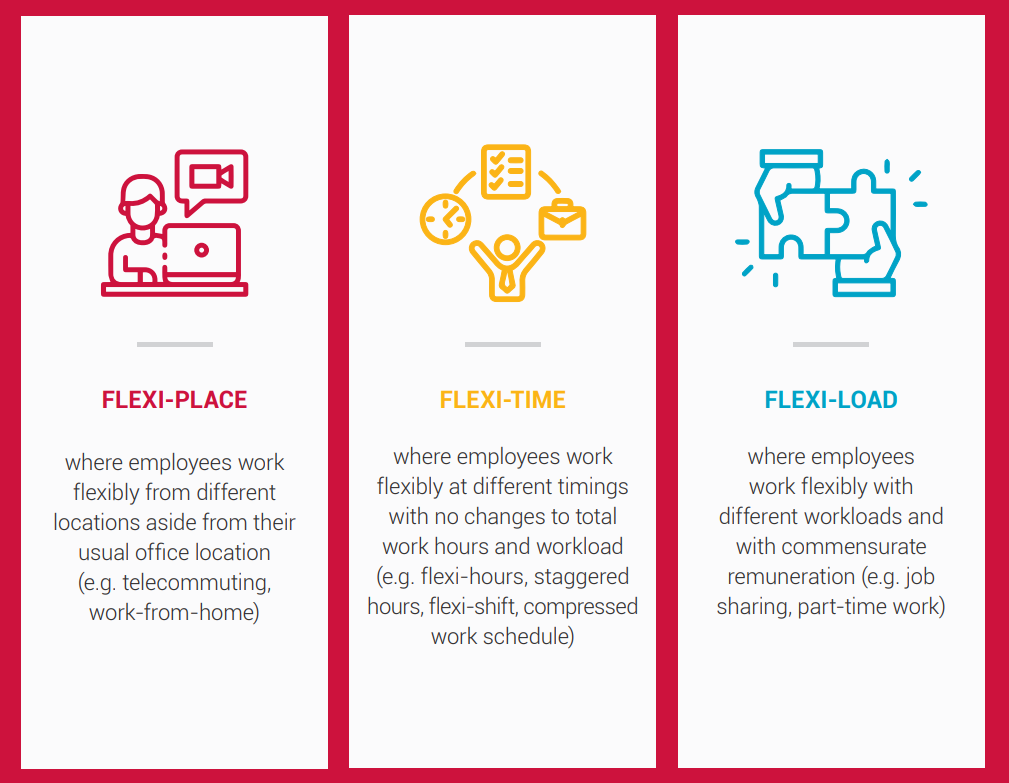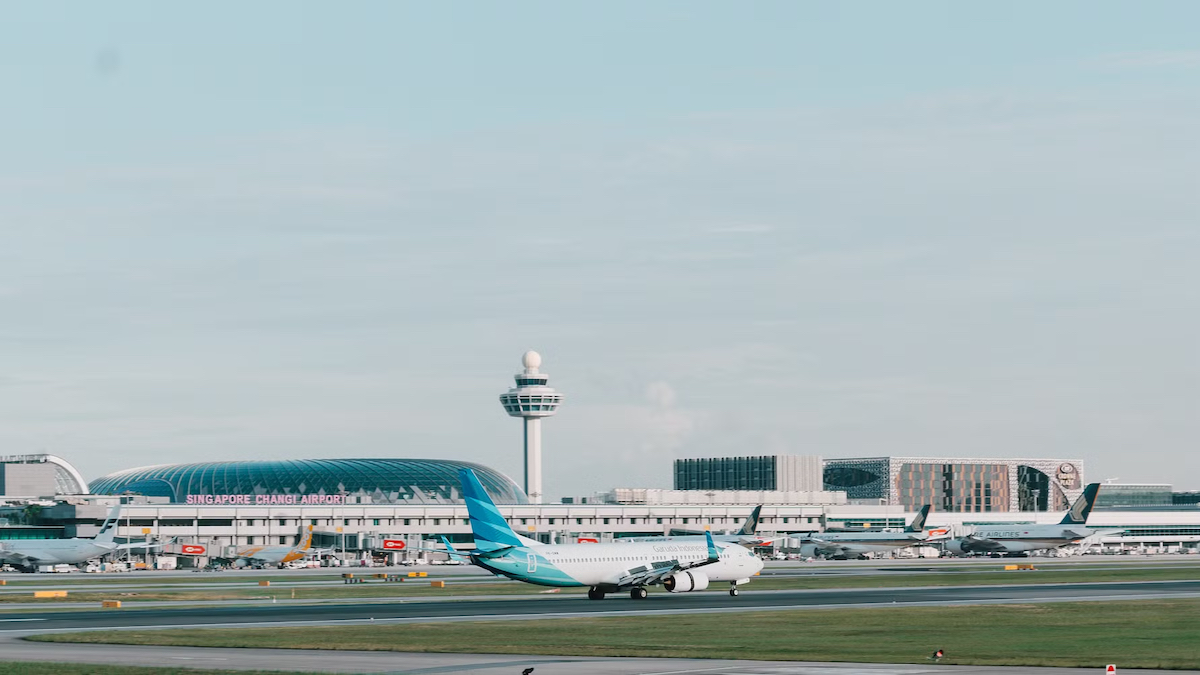From Dec 1, 2024, all employers in Singapore must fairly consider formal requests from employees for flexible work arrangements (FWAs) under the new Tripartite Guidelines on Flexible Work Arrangement Requests.
In an announcement on the Ministry of Manpower (MOM) website today (April 16), it stated that the Singaporean government has accepted all 10 recommendations presented by the tripartite workgroup.
The compulsory guidelines were first unveiled yesterday (April 15) during a company visit to the Ridout Tea Garden outlet of fast-food chain McDonald’s attended by the three co-chairs of the tripartite workgroup that had worked on them since September 2023.
The co-chairs are Minister of State for Manpower Gan Siow Huang, Singapore National Employers Federation honorary secretary Edwin Ng, and Ms Yeo Wan Ling, assistant secretary-general of the National Trades Union Congress.
The objectives of the new guidelines
In a media briefing held earlier in April, the workgroup shared that the guidelines will focus on formal requests for FWAs and the processes to submit and evaluate them.
However, they have clarified that the rules will not govern the outcome.
The guidelines stated that FWAs are defined as work arrangements that vary from the standard work mode, consented to by both the employer and employee, which may fall into three categories:

With the release of the new guidelines, the workgroup aims to sensitise employers, particularly small and medium-sized enterprises (SMEs) with less advanced human resource processes, to consider flexi-time and flexi-load arrangements too.
“It must be the employers’ prerogative to decide if (an) FWA for a particular job is viable from a business point of view. That is a key principle that all tripartite partners subscribe to,” the workgroup said at a briefing on April 4.
It added that the administrative burden is kept light to ensure all firms can comply.
How will it work?
The guidelines will apply to all employees who have served their probation and only cover formal requests.
The workgroup explained that formal requests often take the form of structured, recurring arrangements that entail some change in work processes.
On the other hand, non-formal requests for FWAs do not fall under these guidelines, but they should be allowed to be raised and approved or rejected so long as there is a consensus.
If you look at existing practices, you will find that, especially when it’s very ad hoc, an employee may go to his supervisors (to ask) “Can I come in a bit later today, because I need to just settle some things for my children or for my mother?”, and it works.
What we don’t want to do is to then artificially add on a cumbersome as well as heavy administrative process, and so the formal arrangement is if the employee wants something a little bit more long-term.
The Tripartite Workgroup, as stated in an article by The Straits Times
The guidelines stipulate that the process to submit a formal request and how the request will be handled should be clearly outlined to workers.
Employees will need to make their formal FWA requests in writing and follow requirements implemented by their employers.
In the case where no requirements were stipulated, the guidelines urge employees to mention the following details by default:
- Date of request
- Type of FWA
- Duration
- Reason
- Start and End dates
Following that, employers must respond to the request within two months from the date the request was made. This allows employers ample time to consider the alternative arrangements needed should the request be approved, evaluate their feasibility, and subsequently implement them.
These could include checking how the workload and job hours of the requester’s colleagues may need to be changed, for instance.
The workgroup also noted that two months is the norm stipulated in UK legislation allowing for the right to request FWAs.
Workers will also be free to provide any reason for an FWA request and are not limited to caregiving responsibilities.
What happens if your requests are rejected?
If the arrangement sought is not feasible, a reason must be given by the employer.
The workgroup shared that the reason for rejection should be business-related, such as cost or feasibility, and they should not reject based on other non-business-related factors, including not believing in FWAs.
Responding to media queries during their company visit on April 15 on further actions taken on employers who offhandedly reject FWA requests, Minister Gan added that market forces would mean employers have an interest in complying.
“We know that we have a tight labour market in Singapore, and the employers themselves actually know that if they want to attract talent to join them or retain the good people in the company, they have to be competitive and progressive,” she said.
Here are the steps that employees can take when they have their requests rejected:
- Discuss and resolve disagreements on FWAs through the company’s internal grievance handling protocols.
- Approach unions for advice on formal/non-formal FWA requests
- If your employer does not follow the guidelines, seek assistance from the Tripartite Alliance for Fair and Progressive Employment Practices (Tafep).
The workgroup added that Tafep will engage the employers and advise them to comply with the guidelines.
The Ministry of Manpower (MOM) has said that the guidelines will set out best practices for developing trust and mutual understanding between employers and employees.
This is a more effective approach in developing strong workplace norms around FWAs, compared with a punitive one.
In cases where employers are recalcitrant and/or wilfully refuse to comply with the (guidelines), MOM may issue a warning and require them to attend corrective workshops
The Ministry of Manpower (MOM)’s response to queries from The Straits Times
The workgroup said Tafep and the Institute for Human Resource Professionals will introduce training and resources to help employers gain the capabilities to implement FWAs effectively.
These resources will be progressively rolled out from May 2024. Employers can visit the Tafep website to access these resources, sign up for training sessions and make inquiries.
Earlier this month (April 9), NTUC released a briefing paper to showcase unionised companies and labour movement partners that have benefited from putting FWAs in place, as well as strategies for implementing FWAs.
“All job types in all industries, with creativity, will be able (to be) re-engineered such that it creates a trust culture for workers as well as employers when it comes to the introduction of flexible working arrangements,” said Yeo to reporters on April 15. Yeo is also the director of NTUC’s U SME and U Women and Family units.
Featured Image Credit: Adobe Stock








